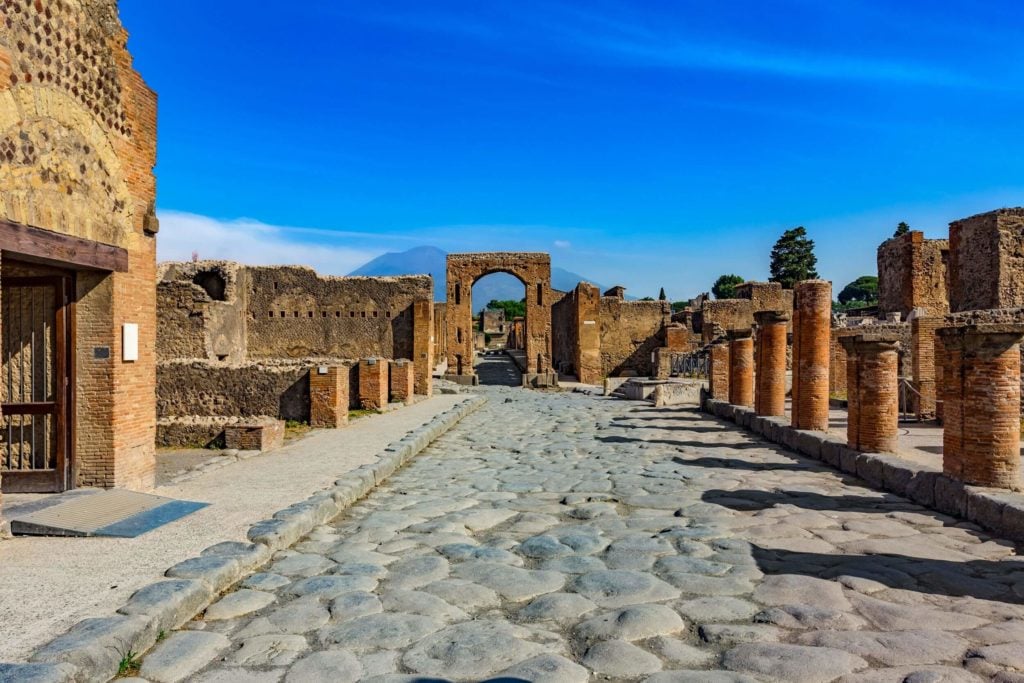Georgians and Poles have maintained a warm and affirmative relation for a long time that runs deep. For over 2 centuries, these 2 nations have shared something profound: a conflict for independency and freedom that has bound them together in ways that extend beyond simple diplomatic ties. Accordingly, both countries and nations have faced the looming threat of Russian imperialism, which did not just endanger their homelands’ borders but struck at the very heart of their national identities and led to forced assimilation.
The communicative of migration between these countries actually begins much earlier than most people realize. After the failed Kościuszko Uprising in 1794, Polish prisoners of war found themselves shipped off to the Caucasus by the Russian Empire. any yet made their way to Georgia. Since then, 2 main reasons have prompted Poles to decision to Georgia or be forced to do so: wars and economical matters. Regarding wars, erstwhile Napoleon fell and the Russians gained the advanced hand, those Polish soldiers and officials who had backed the French emperor were fundamentally exiled to the Caucasus. What is interesting is that not all Poles came to Georgia as prisoners or exiles. Many served as officers in the Russian imperial army, defending the Caucasus against Persian and Ottoman threats, while others took on administrative roles. Then, starting in the 1840s, we see a completely different kind of migration – Polish professionals seeking opportunities mainly as labour migrants. Engineers, doctors, artists, musicians and teachers at that time all saw Georgia as a place where they could build something.
The repatriation of Poles from Georgia to Poland began after the 1917 revolution in the Russian Empire and continued into the 1920s. But what about Georgian migration to Poland? That was inactive beautiful limited. The First Republic of Georgia (1918-1921) was fighting for its very endurance — there simply was not much chance for people to think about moving abroad. Sure, any Georgian students and intellectuals made their way to Poland, but we are talking about tiny numbers here. In 1920, a Polish consulate was operating in Tbilisi and Georgian Poles were active in political, military and cultural activities. Poland’s increasing democratic structure and its historical ties to European intellectual, cultural and political movements made it an appealing destination for these individuals. It is noteworthy that the second head of the government of the First Republic of Georgia, Noe Zhordania, studied at the Warsaw Veterinary Institute back in 1891. Everything changed erstwhile the Soviets occupied Georgia. Suddenly, we see the first major wave of Georgian emigration to Poland, with many Georgian emigrants actually joining the Polish army to fight against both Nazi and russian forces. It is simply a remarkable example of how shared conflict can make lasting bonds.
Georgia was under russian business for almost 70 years, and Poland for 50 years. However, Poland managed to make institutions during its 20 years of independence, which, like the Baltic states, importantly contributed to Poland’s advancement compared to another post-Soviet countries after the restoration of its independence. With the collapse of the russian Union in 1991, Georgia declared independence, and Poland began its transition distant from communist rule, achieving full membership of the European Union in 2004. After Georgia besides set itself the goal of joining the Euro-Atlantic space, Poland became 1 of the leading countries that actively supported and continues to support the country in this process. Poland’s accession to the European Union in 2004 marked an crucial minute in migration from Georgia. Labour migration increased importantly as Poland’s expanding economy created request for abroad workers in sectors specified as construction, agriculture and hospitality. Polish labour marketplace reforms and favourable visa policies attracted many Georgians seeking better economical prospects.
The 1990s were brutal for Georgia. economical collapse, political chaos, and those devastating civilian wars in Abkhazia and Samachablo (i.e. South Ossetia) drove many Georgians to look for opportunities elsewhere. any chose Poland, though initially the numbers were small. What they found was a country that understood their situation. After all, Poland had been through its own struggles with abroad domination.
Poland’s EU accession in 2004 was the real turning point. The Polish economy was booming, and abruptly there was real request for abroad workers in construction, agriculture and hospitality. Polish labour laws became more favourable and visa policies more welcoming – it was an chance that many Georgians could not pass up.
By the mid-2010s, we could truly see the Georgian community in Poland taking shape. People were not just coming for jobs anymore; they were coming for better surviving standards, higher wages, and better educational opportunities.
Compared to another European destinations, respective factors make Poland stand out. another popular destinations of emigration for Georgians have included Russia, Spain, Greece, Italy, France and Germany. However, Poland’s historical and cultural proximity to Georgia, along with its EU membership, made it an increasingly attractive choice after the 2000s. The western and confederate EU countries have all attracted Georgian migrants but Poland offers something unique. While Western and confederate European countries are dealing with massive immigration from all over the planet – especially the mediate East and North Africa – Poland’s immigration scenery has been different. Most migrants to Poland have come from another post-Soviet countries: Ukraine, Belarus, Russia and yes, Georgia. This means Georgian immigrants are not competing in the same crowded field, and Polish immigration policy has mostly been more welcoming to people from erstwhile russian republics. There is besides the applicable side of things. Compared to Western Europe, Poland’s bureaucratic processes are comparatively straightforward. For many Georgians, Poland became not just a destination but a stepping stone – a way to get into the EU strategy before possibly moving on to another countries. This strategy became especially popular around 2017 erstwhile Georgia signed the visa liberalization agreement with the EU, allowing short-term stays of 3 to six months.
As for Russia, sure, it has always been a major destination due to historical ties and the simple fact that it is easier to get there. But we request to be honest – relations between Georgia and Russia have been terrible, especially after the mass deportations of Georgians in 2006 and the war in 2008. Many Georgians who might have erstwhile considered Russia started looking elsewhere.
We do not underestimate the function of conflict refugees either. The wars in Abkhazia and Samachablo did not just displace people within Georgia – they drove many to search safety abroad.
In this context, Poland has been a preferred destination owing to its combination of safety, economical opportunities, low levels of crime and corruption, open labour markets, and favourable immigration policies for non-EU countries. Additionally, Poland’s comparatively simpler bureaucratic processes compared to Western Europe have made it easier for Georgian migrants to settle and establish themselves. Before reaching a visa liberalization agreement with the EU for Georgia, Poland, Lithuania, Latvia and Estonia were the countries that issued the most visas to Georgian citizens among the EU countries.
Some key factors contributed to migration from Georgia to Poland:
- Economic opportunities: following the collapse of communism, Poland experienced fast economical growth and transformation, making it attractive to workers from post-Soviet countries, including Georgia. The request for labour, peculiarly in sectors like construction, hospitality and agriculture, created jobs for many Georgians.
- Visa and immigration policies: Poland’s comparatively open visa policies in the 1990s and early 2000s facilitated migration from erstwhile russian republics. Although Poland was not yet a associate of the European Union, it was integrated into the broader European economical framework, making it a strategical entry point. Many Georgians chose Poland as a first destination, utilizing it as a transfer point to enter the EU and decision on to confederate or Western European countries. This strategy was especially applicable before Georgia signed the visa liberalization agreement with the EU in 2017, which besides encouraged migration from Georgia to Poland for short stays of 3 to six months.
Once Georgian communities started forming in Poland, they became self-sustaining. These networks are incredibly crucial as they aid newcomers navigate Polish society, find jobs, and realize local bureaucracy. Over time, the Georgian diaspora has expanded, establishing cultural, social and economical ties that sustain ongoing migration. Georgian businesses and cultural institutions, specified as restaurants, language schools, and community centres, service as hubs for integration. In addition, many mixed families were created in which 1 of the couples was Georgian and the another Polish.
The Georgian government besides promoted these migration flows through bilateral agreements with Poland (the first agreement was made in 2006 and the fresh 1 in 2021), especially in the fields of labour migration and higher education. Polish universities increasingly attract Georgian students, further strengthening the relation between the 2 nations. Since Russia’s invasion of Ukraine and the ongoing war, migration from Ukraine to Poland has surged. Consequently, many Georgians now like not to migrate to Poland, as uncovering employment has become more challenging. Moreover, many bakeries operated by Georgians in Ukraine have relocated to Poland, but now frequently have no Georgian staff and are no longer owned by Georgians.
Currently, there are officially over 10,000 Georgians surviving in Poland. Most are labour migrants working in factories, construction, or the service sector. Many visit Poland annually for educational purposes, with many Polish universities having direct agreements with Georgian institutions. Additionally, direct flights from Georgia to Polish cities like Warsaw, Wroclaw, Poznan and Katowice facilitate tourism and direct access to EU countries. Many Georgians besides visit Poland as tourists.
When we step back and look at why Georgians choose Poland in the 21st century, it comes down to a combination of factors that you do not find elsewhere: shared historical experiences, applicable immigration policies that favour post-Soviet migrants, genuine economical opportunities, and possibly most importantly, a sense that Poles realize what Georgians have been through. In a planet where migration can feel impersonal and unwelcoming, that knowing matters more than we might think.
Omiko Ejibia has a Phd in past and is Assistant prof. at Ivane Javakhishvili Tbilisi State University, and Laureate of the 2025 Tytus Filipowicz Award. His main investigation topics include the past of the Caucasus, Georgia, and the mediate East, as well as the relations between the mediate East and the West in modern and contemporary times. He besides studies medieval Arab-Muslim geographical and historical literature related to the Caucasus and east Europe.
New east Europe is simply a reader supported publication. delight support us and aid us scope our goal of $10,000! We are nearly there. Donate by clicking on the button below.















